| SUPPORT FOR GOOD PUBLIC POLICY PROGRAM |
| Concept Note and TOR for an Assessment on the Establishment of a Public Policy Institute (PPI) for Timor-Leste
“The first lesson of economics is scarcity. There is never enough of anything to satisfy all those who want it. The first lesson of politics is to disregard the first lesson of economics.” – Thomas Sowell I. Background The Asia Foundation’s Support for Good Public Policy (SGPP) Program will commission an assessment of the viability of the establishment of a non-profit/non-governmental public policy or policy research institute (PPI). The assessment will recommend a sustainable model for a PPI in the future. Over the course of the last few years, The Asia Foundations, through SGPP has supported a group of reform-minded individuals to form a ‘Policy Leaders Group’ – the PLG. The PLG has met regularly to discuss relevant public policy topics and share ideas. With SGPP financial assistance, it has also granted fellowships to Timorese researchers to do research on public policy issues. The PLG Research Fellowship is an important capacity development mechanism for Timorese researchers in doing public policy research. Other activities conducted by PLG includes, annually National Development Forum, TATOLI Debate – policy debates using TV-, capacity development for PLG members in the form of seminars and conferences and provides crucial evidence and ideas for the policy-making process. SGPP will complete implementation by June 2017. This PPI assessment will inform the PLG and donors of steps, resources and consequent risks of moving PLG from an informal group of like-minded to a Timorese public policy institution or think tank. II. An Effective and Responsive PPI: Recommendations for a Timor-Leste PPI The assessment will explore and identify possible models for a PPI. In Singapore, the majority of PPIs are based in state-funded universities and they have established certain criteria for engagement with other CSOs. In Nepal, the Niti Foundation considers other CSOs as resource of information and are involved with them in very limited capacity. Niti Foundation provides funding for other research institutes to conduct public policy research. Australia’s Grattan Institute is an independent non-partisan think tank which aims to provide practical solutions to policy issues. It runs seven policy programs: Budgets and Tax, Energy, Health, Higher Education, Productivity Growth, School Education, and Transport and Cities. Grattan began with a $15 million endowment from each of the Australian Federal and Victorian State Governments. BHP Billiton provided $4 million. The University of Melbourne contributes support in kind, most importantly by housing it in a building. The assessment will explore and outline the costs and benefits of different PPI models. The assessment should address the following:
Diverse and reliable funding sources will be crucial to the sustainability of the PPI. Diversity will also improve the credibility of the PPI’s work. It is important that the PPI is perceived as non-partisan by both the government and the public, and not beholden to the agenda of a particular donor, political party or individual. For instance, a set of criteria in the PPI’s Constitution could provide rules in relation to funding. To become operational, the PPI will require core funding. The assessment should propose possible funding sources and models. It should consider which factors motivate donors to contribute, and associated risks both for donors and the PPI. The assessment should provide a cost-structure for staffing, equipping and hosting a PPI, given sustainability issues such as possible limitations on available funding.
The PPI must be established within the legal framework of Timor-Leste. The assessment should outline the process required for the PPI to become a legally registered institution.
One governance option is for the PPI to report to an advisory board or board of trustees of prominent individuals. (The current PLG members has stated their interest to sit either as board members or as the founders of the future PPI. The diversity of political affiliations of board members should also be considered.) The PPI should be led by an independent, non-partisan, strong executive leadership that commands respect from government officials, CSOs, and other stakeholders or interest groups. The assessment should explore alternative governance arrangements, examine risks and make recommendations.
It will be essential for the PPI to establish its comparative difference to local and international NGOs, and its respective expertise. As outlined above, PLG has already effectively delivered a number of policy-relevant signature activities with Secretariat support from The Asia Foundation and funding from the Australian Government. The assessment should suggest core activities and outputs for the PPI, with a view to complementing the activities of other actors and making significant contributions to public policy in Timor-Leste. The PPI should manage its research products and image so as not to be considered an adversary to government. Part of the PPI’s core role should be to: o Strengthen the output of government agencies that produce data o Strengthen government’s policy-making processes o Educate government officials in public policy o Educate and explain public policy reforms to the public The PPI should quickly establish a strategic plan, with the aim of looking forward to the next five-year period. The strategic plan will clearly set out its mission and also provide information on how PPI can be helpful for the government in policy formulation process and provide oversight of implementation. An essential part of the planning process will be for the PPI to identify research clusters and topic areas of focus. It will need to demonstrate expertise in these clusters, and a comparative difference to existing policy institutes in Timor-Leste. The success of the PPI’s influence on public policy will come down to its reach to decision-makers and relationships inside and outside government. In this regard, PPI should have strategies in place to access high-level decision makers or policy makers. Such strategies will include a clear communications plan to inform government, civil society and donors about its presence and policy work. The assessment should identify opportunities for the PPI to feed into the policy process. Tetun is the language used most broadly by government and the public. But languages of research and international engagement include English and Portuguese. The assessment should also consider the costs and benefits of various languages, with a view to informing the institution’s language policy.
The assessment should identify other risks associated with the PPI’s operations. It should suggest guidelines for administering reports, publications and communications and criteria to be applied to the PPI’s relationships with CSOs, media, and the public. The assignment The Foundation will hire a consultant9s) for a period of 5 days to do desk review, 10 working days to conduct a field assessment and for an additional 10 working days to develop a report and recommendations on the establishment of a PPI in Timor-Leste. The consultant(s) will refer to this concept note to design its work plan and methodology of the assessment. The consultant will liaise regularly with the SGPP Team Leader, Hugo Fernandes, when conducting the assessment. III. Deliverables By the end of the period of assignment, the consultant shall provide the Foundation with a final report and recommendations of the establishment of future PPI. The report shall contain the details of following aspects: – The model options and reasoning for a recommended model taking into account views of PLG members, government stakeholders and potential donors – The mission level, suggested work plan with signature activities and sectoral focuses – The governance of the institution – The stages of establishment and phases of development IV. Requirements for Submission of application The consultant(s) – maximum two persons- shall have experience more than 10 years in developing think tank and or public policy institutes in developing countries; hold a master degree or doctoral degree on development studies or other related discipline. Application shall be followed by following documents: – Submit application with comment to the concept note – CVs – Examples of latest work on related field – Work plan – Budget proposal Deadline for submission of application is March 12, 2017 to Hugo Fernandes at [email protected]
|




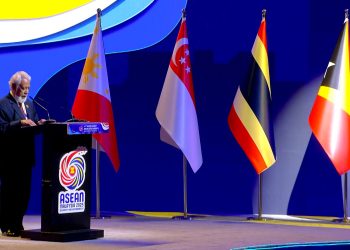
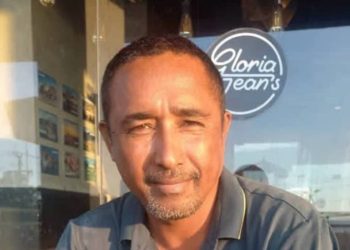
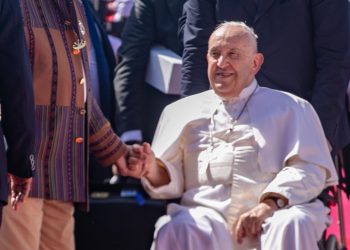
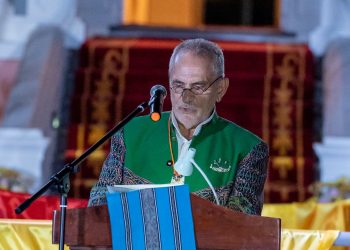
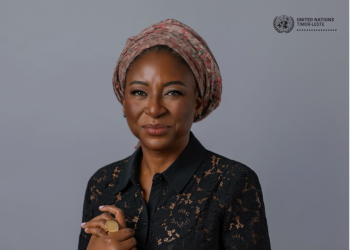
Discussion about this post